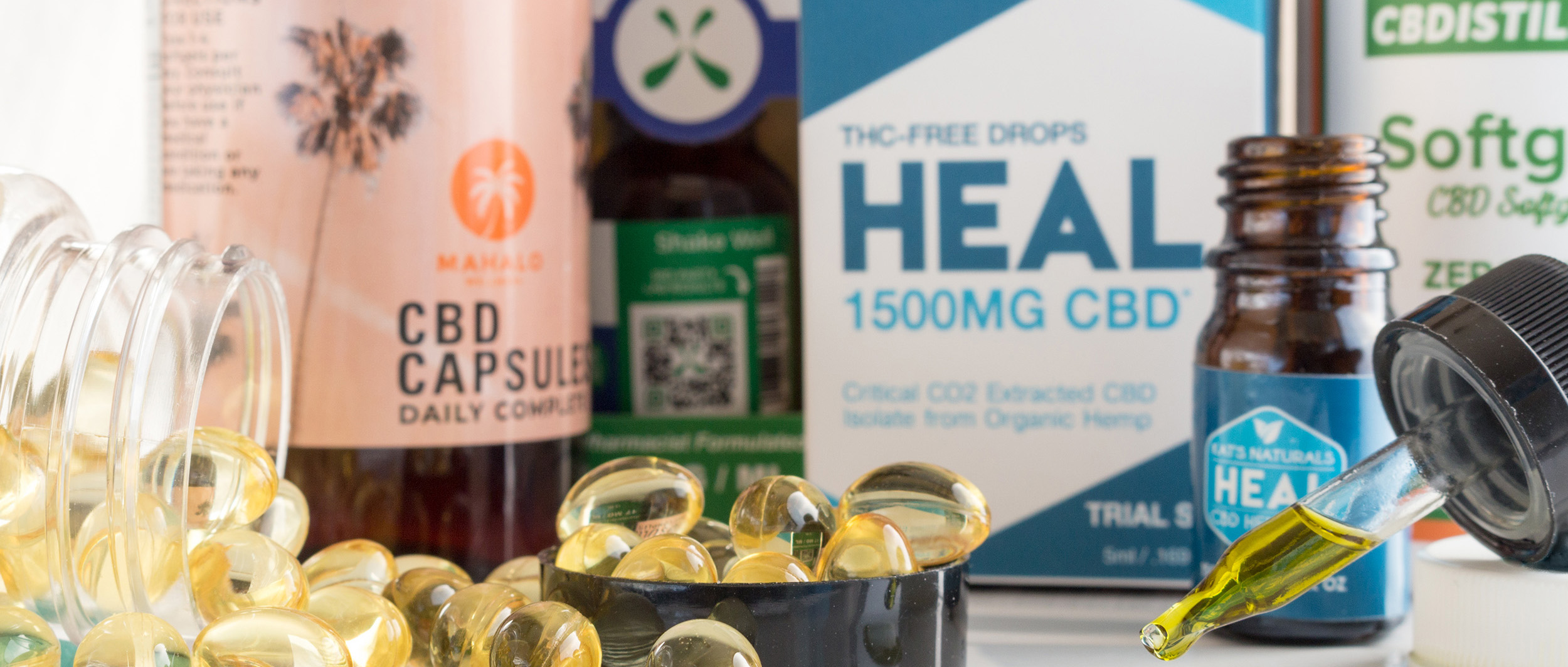CBD Oil and Its Applications
Last month, Network Health blogged about safety considerations to keep in mind if you purchase CBD products. Today, we present information about CBD uses, side effects and if CBD can replace another medication.
Is CBD legal? Here is the regulatory information
Over-the-counter (OTC) CBD is not regulated by the Food and Drug Administration (FDA), therefore survey or questionnaire results have not been studied or proven through the FDA channel. The only FDA-approved CBD prescription, Epidiolex, is considered safe and effective for two rare and severe seizure disorders. In contrast to OTC CBD products, Epidiolex has a much higher concentration of CBD that is not available (or legal) with OTC products. Since the FDA has not approved the use of OTC CBD oil, Network Health does not endorse its use at this time.
CBD most common uses and application
Anxiety, joint pain and difficulty sleeping are the most common uses of CBD. Natural Medicine Database (NMDB) and Pharmacist Letter have studied available clinical research and determined there isn’t reliable evidence that CBD treats these three conditions. Other academic sources have stressed the need for additional research on this topic.
Consumer Report (CR) questioned over 4,000 Americans using CBD and found it is most commonly used—and effective—for anxiety, joint pain and difficulty sleeping. Effectiveness varies depending on the CBD product used. The CR questionnaire showed infused food/drink used most commonly and followed by oral drops, sprays or vaping devices, topical rub/creams, smokables and lastly oral capsules.
| Condition | Extremely/very effective | moderately effective | slightly/not effective at all |
| Stress/Anxiety | 63% | 17% | 16% |
| Joint Pain | 38% | 30% | 27% |
| Difficulty Sleeping | 52% | 28% | 16% |
*CR survey results of 4000 Americans using CBD from May 2019 issue. Total under 100% because those who answered “unsure” excluded.
Clinical research and questionnaires show how challenging it is to decide if or how CBD should be used. Questionnaires naturally rate drugs positively because participants know they are on the drug in question. Even sugar pills give people good results one-third, 33 percent, of the time. The goal of clinical research is to take away as much bias as possible to learn how beneficial medication is. Better study design—a large group takes a sugar pill or placebo, and another large group takes the medication without participants knowing if they are taking the placebo or medication—produces more meaningful results. Recommendations can be based on the results of this type of study. Without them, patients and providers are uncertain if CBD is a twenty-first-century “snake oil” or a beneficial medication.
Is CBD just the placebo effect?
The placebo effect occurs when a person experiences benefits from a medication that would not be expected to have benefit, like taking an inactive sugar pill, or placebo, and feeling improvement in the condition. When patient-reported benefits are reviewed, the belief that medication will help a condition increases the chance it will. Some speculate the placebo effect may play a part with CBD and for certain conditions like pain, anxiety and difficulty sleeping, that may not be a bad thing. Good advice is to maintain close communication with a prescriber, look for measurable improvement and keep a healthy level of skepticism.
CBD side effects
CR reported 74 percent of people experiencing no side effects and the NMDB states CBD is well tolerated. Those who did have side effects most commonly reported tiredness. Usually, by decreasing the dose, tiredness is also decreased. Other side effects may include dry mouth, diarrhea, vomiting, decreased appetite, weight loss, fatigue and lightheadedness. Vape pens carry extra risk because when burned, liquid can change into formaldehyde, irritating the nose and eyes and increasing the risk of asthma and cancer. Health officials say people who experience these symptoms should seek medical attention and call 911 if immediate assistance is needed. To report symptoms or get answers to questions related to CBD products, call Wisconsin Poison Control at 800-222-1222.
Can CBD replace traditional medication?
CR found 22 percent were able to replace a prescription (Rx) or OTC drug with CBD. Here’s the breakdown.
- 47 percent replaced an OTC like Advil or Tylenol
- 36 percent replaced an Rx opioid
- 33 percent replaced an anti-anxiety Rx (i.e. Xanax or Ativan)
- 22 percent replaced a sleeping Rx (i.e. Ambien, Lunesta)
It is important to note that OTC CBD is generally more expensive than generic prescriptions and CBD is not covered by insurance. Whether or not CBD is a viable medication replacement remains to be seen, but it is promising to see a trend that shows discontinuation of potentially addictive substances.
This article is for information purposes only and is not meant to replace the advice of provider. Always discuss medication changes with your provider before stopping any medication.
*This blog is part two of a two-part series. Click here to learn about how to find safe CBD products.




